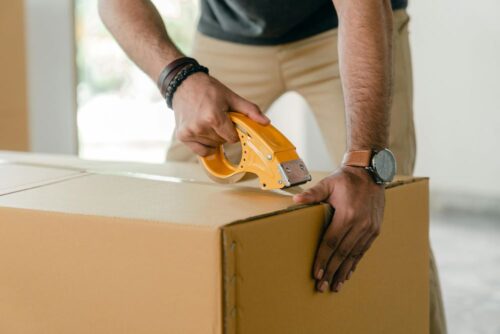Last Updated on July 2, 2024 by
Moving to Miami, Florida, from Connecticut, is a big change that comes with unique challenges. Besides the complex interstate moving logistics, navigating the hurricane season after settling in is a concern for many. Thus, being well-prepared is essential for ensuring the safety and well-being of your family and property. In this guide, we offer tips and insights to help you navigate Miami’s hurricane season effectively.
Get Here First
You can’t start preparing for the hurricane season before you get here and assess your new home. Thus, if you want to leave Connecticut and become a Floridian, join forces with a top-notch interstate moving company. Professional movers can pack and move all your belongings in no time so you can start setting up your new home.
Understanding Miami’s Hurricane Season
Miami’s hurricane season typically runs from June 1 to November 30, peaking from mid-August to late October. During this time, severe storms and hurricanes can cause significant damage. Historically, Miami has faced numerous hurricanes, some of which have had devastating impacts. As a matter of fact, understanding the timeline and potential severity of hurricanes is the first step in preparing adequately.
Create a Hurricane Preparedness Plan
A well-thought-out hurricane preparedness plan is vital. This plan should include several key components.
- First, establish an emergency contact list with numbers for family, friends, and local authorities. Communication strategies should be clear, ensuring everyone knows how to stay in touch if separated.
- Next, identify evacuation routes and shelters in your area. Knowing where to go and how to get there quickly can be lifesaving.
- Finally, familiarize yourself with community resources and local authorities who can assist.
Build a Support Network in Your New Community
One often overlooked aspect of hurricane preparedness is the value of a strong support network. Moving to Miami means integrating into a community that has weathered many storms. Establishing connections with neighbors can provide mutual support during emergencies, like sharing resources and information.

Secure Your Home with Structural Reinforcements
Securing your home against hurricane damage involves several structural reinforcements. Start by installing storm shutters or impact windows to protect against high winds and flying debris. Reinforcing home doors and garage doors is equally important, as these can be weak points during a storm. Also, inspect and fortify your roof to prevent it from being torn off by strong winds. By taking these steps, you enhance your home’s resilience to hurricanes.
Stock Up on Essential Supplies
Having a stockpile of essential supplies is an important hurricane safety tip. Prepare a detailed list of emergency supplies for at least a week, including non-perishable food and water. Don’t forget medications and first aid kits for addressing injuries and health issues. Tools and equipment for post-storm recovery, such as flashlights, batteries, and portable chargers, should also be included. Being well-stocked ensures you can sustain yourself and your family during and after the storm.
Understand Your Insurance Coverage
Understanding your insurance coverage is an important aspect of hurricane preparedness. There are various types of insurance relevant to hurricanes, such as homeowners, windstorms, and flood insurance. Reading and comprehending your policy details is essential to know what is covered and what isn’t. In the event of a hurricane, filing claims and accurately documenting damage can expedite the recovery process. Another key point is the importance of flood insurance, even if you don’t live in a designated flood zone, as hurricanes often bring significant flooding.

Stay Informed on Weather Alerts and Updates
Staying informed with weather alerts and updates can make a significant difference during hurricane season. Utilize the best apps and websites for real-time updates on storm developments. Understanding hurricane categories and warnings helps you gauge the severity and necessary precautions. Staying updated during a storm is important, as conditions can change rapidly. Being informed lets you make timely decisions and take appropriate actions to protect yourself and your family.
Protect Your Valuables
Safeguarding your valuables, both personal and financial, is essential during hurricane season. Secure important documents like passports, insurance policies, and birth certificates in waterproof containers. Digital backups and cloud storage offer additional layers of protection. Protecting electronics and other valuables from potential water damage is also important. Creating an inventory of household items can be helpful for insurance claims and recovery efforts. These steps ensure that your most important possessions are safeguarded against hurricane damage.
Recovery and Safety Tips After the Storm
Recovery after a hurricane involves several safety tips and measures. First, assess and document any damage to your property as soon as it’s safe. This documentation is essential for insurance claims and potential government assistance. Safety tips for returning home include checking for structural damage, gas leaks, and electrical issues. Resources for financial and physical recovery, such as FEMA and local aid programs, can provide necessary support. Community support and assistance programs can also be invaluable during recovery, helping you rebuild and return to normalcy.

Conclusion on Why Moving to Miami Requires Hurricane Preparedness
Moving to Miami requires a solid hurricane preparedness plan because of the city’s vulnerability to severe storms. Understanding and integrating hurricane readiness into everyday life is important for those looking to become a Floridian. It can safeguard your loved ones and your house from the possible hazards of hurricane season. So, stay safe and enjoy Miami’s amazing life, knowing you are well-prepared for any storm that comes your way.
